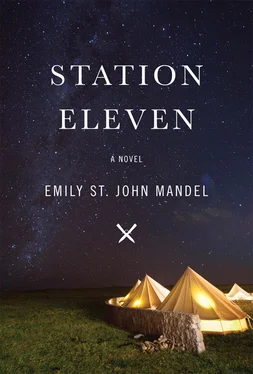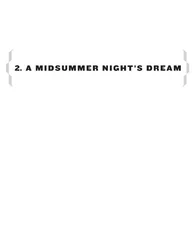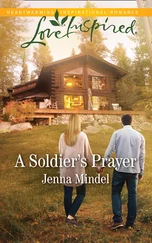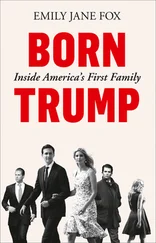“Clear,” one of the medics said, and the other moved back while he shocked the body.
“Hello,” Jeevan said, to the girl. He knelt before her. Why had no one come to take her away from all this? She was watching the medics. He had no experience with children, although he’d always wanted one or two of his own, and wasn’t exactly sure how to speak to them.
“Clear,” the medic said, again.
“You don’t want to look at that,” Jeevan said.
“He’s going to die, isn’t he?” She was breathing in little sobs.
“I don’t know.” He wanted to say something reassuring, but he had to concede that it didn’t look good. Arthur was motionless on the stage, shocked twice, Walter holding the man’s wrist and staring grimly into the distance while he waited for a pulse. “What’s your name?”
“Kirsten,” the girl said. “I’m Kirsten Raymonde.” The stage makeup was disconcerting.
“Kirsten,” Jeevan said, “where’s your mom?”
“She doesn’t pick me up till eleven.”
“Call it,” a medic said.
“Who takes care of you when you’re here, then?”
“Tanya’s the wrangler.” The girl was still staring at Arthur. Jeevan moved to block her view.
“Nine fourteen p.m.,” Walter Jacobi said.
“The wrangler?” Jeevan asked.
“That’s what they call her,” she said. “She takes care of me while I’m here.” A man in a suit had emerged from stage right and was speaking urgently with the medics, who were strapping Arthur to a gurney. One of them shrugged and pulled the blanket down to fit an oxygen mask over Arthur’s face. Jeevan realized this charade must be for Arthur’s family, so they wouldn’t be notified of his death via the evening news. He was moved by the decency of it.
Jeevan stood and extended his hand to the sniffling child. “Come on,” he said, “let’s find Tanya. She’s probably looking for you.”
This seemed doubtful. If Tanya were looking for her charge, surely she would have found her by now. He led the little girl into the wings, but the man in the suit had disappeared. The backstage area was chaotic, all sound and movement, shouts to clear the way as Arthur’s procession passed, Walter presiding over the gurney. The parade disappeared down the corridor toward the stage doors and the commotion swelled further in its wake, everyone crying or talking on their phones or huddled in small groups telling and retelling the story to one another—“So then I look over and he’s falling”—or barking orders or ignoring orders barked by other people.
“All these people,” Jeevan said. He didn’t like crowds very much. “Do you see Tanya?”
“No. I don’t see her anywhere.”
“Well,” Jeevan said, “maybe we should stay in one place and let her find us.” He remembered once having read advice to this effect in a brochure about what to do if you’re lost in the woods. There were a few chairs along the back wall, and he sat down in one. From here he could see the unpainted plywood back of the set. A stagehand was sweeping up the snow.
“Is Arthur going to be okay?” Kirsten had climbed up on the chair beside him and was clutching the fabric of her dress in both fists.
“Just now,” Jeevan said, “he was doing the thing he loved best in the world.” He was basing this on an interview he’d read a month ago, Arthur talking to The Globe and Mail —“I’ve waited all my life to be old enough to play Lear, and there’s nothing I love more than being on stage, the immediacy of it …”—but the words seemed hollow in retrospect. Arthur was primarily a film actor, and who in Hollywood longs to be older?
Kirsten was quiet.
“My point is, if acting was the last thing he ever did,” Jeevan said, “then the last thing he ever did was something that made him happy.”
“Was that the last thing he ever did?”
“I think it was. I’m so sorry.”
The snow was a glimmering pile behind the set now, a little mountain.
“It’s the thing I love most in the world too,” Kirsten said, after some time had passed.
“What is?”
“Acting,” she said, and that was when a young woman with a tear-streaked face emerged from the crowd, arms outstretched. The woman barely glanced at Jeevan as she took Kirsten’s hand. Kirsten looked back once over her shoulder and was gone.
Jeevan rose and walked out onto the stage. No one stopped him. He half-expected to see Laura waiting where he’d left her in front-row center — how much time had passed? — but when he found his way through the velvet curtains, the audience was gone, ushers sweeping and picking up dropped programs between rows, a forgotten scarf draped over the back of a seat. He made his way out into the red-carpet extravagance of the lobby, careful not to meet the ushers’ eyes, and in the lobby a few remnants of the audience still lingered but Laura wasn’t among them. He called her, but she’d turned off her phone for the performance and apparently hadn’t turned it back on.
“Laura,” he said, to her voice mail, “I’m in the lobby. I don’t know where you are.”
He stood in the doorway of the ladies’ lounge and called out to the attendant, but she replied that the lounge was empty. He circled the lobby once and went to the coat check, where his overcoat was among the last few hanging in the racks. Laura’s blue coat was gone.
Snow was falling on Yonge Street. It startled Jeevan when he left the theater, this echo of the plastic translucencies that still clung to his jacket from the stage. A half dozen paparazzi had been spending the evening outside the stage door. Arthur wasn’t as famous as he had been, but his pictures still sold, especially now that he was involved in a gladiatorial divorce with a model/actress who’d cheated on him with a director.
Until very recently Jeevan had been a paparazzo himself. He’d hoped to slip past his former colleagues unnoticed, but these were men whose professional skills included an ability to notice people trying to slip past them, and they were upon him all at once.
“You look good,” one of them said. “Fancy coat you got there.” Jeevan was wearing his peacoat, which wasn’t quite warm enough but had the desired effect of making him look less like his former colleagues, who had a tendency toward puffy jackets and jeans. “Where’ve you been, man?”
“Tending bar,” Jeevan said. “Training to be a paramedic.”
“EMS? For real? You want to scrape drunks off the sidewalk for a living?”
“I want to do something that matters, if that’s what you mean.”
“Yeah, okay. You were inside, weren’t you? What happened?” A few of them were speaking into their phones. “I’m telling you, the man’s dead,” one of them was saying, near Jeevan. “Well, sure, the snow gets in the way of the shot, but look at what I just sent you, his face in that one where they’re loading him into the ambulance—”
“I don’t know what happened,” Jeevan said. “They just dropped the curtain in the middle of the fourth act.” It was partly that he didn’t want to speak with anyone just now, except possibly Laura, and partly that he specifically didn’t want to speak with them. “You saw him taken to the ambulance?”
“Wheeled him out here through the stage doors,” one of the photographers said. He was smoking a cigarette with quick, nervous motions. “Medics, ambulance, the whole nine yards.”
“How’d he look?”
“Honestly? Like a fucking corpse.”
“There’s botox, and then there’s botox ,” one of them said.
“Was there a statement?” Jeevan asked.
“Some suit came out and talked to us. Exhaustion and, wait for it, dehydration.” Several of them laughed. “Always exhaustion and dehydration with these people, right?”
Читать дальше












